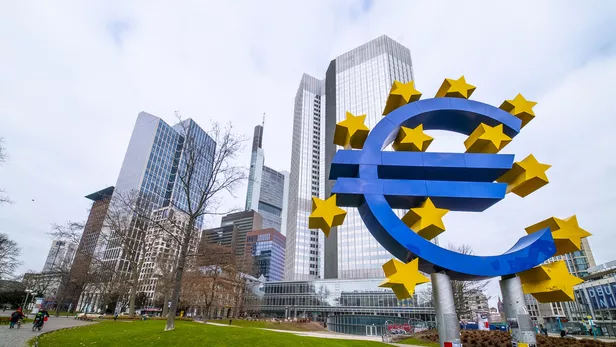The Commission says that “the European economy continues to show resilience in a difficult global context” but is watching inflation closely.
The European Commission raised its economic growth forecast for 2023 in the euro zone on Monday, due to a “better than expected” start to the year amid calming energy prices and improving supply chains. The EU executive, however, warned of higher than expected inflation. It is now betting on growth in Gross Domestic Product (GDP) of 1.1% in 2023 (i.e. +0.2 points compared to the previous forecast of mid-February), then 1.6% in 2024 (+0 .1 point), in the 20 countries sharing the common currency. Same trend for the whole of the EU, whose growth is now announced at 1% (+0.2 point) in 2023, then 1.7% (+0.1 point).
European Economy
“The European economy continues to show resilience in a difficult global context,” observed the Commission in a press release. “More moderate energy prices, the reduction of supply constraints”, after the logistical blockages inherited from the pandemic, as well as a “robust job market” have “supported moderate economic growth in the first quarter , dispelling fears of recession,” he said. Eurozone GDP grew very slightly (+0.1%) in the first quarter of 2023 compared to the previous quarter, after having stagnated in the last three months of 2022. For the European Union as a whole, growth rebounded, with an increase of 0.3% after a decline of 0.1% in the fourth quarter of 2022. Result in particular of the efforts of Europeans to reduce their gas consumption and diversify their supplies following the invasion of Ukraine by Russia, the lull in energy prices “is reflected in the economy, reduces production costs and lowers household bills”, insists Brussels.
However, the headwinds persist, including still strong inflationary pressures. The Commission has thus revised its inflation forecast for 2023 upwards to 5.8% (+0.2 point) in the euro zone and 6.7% in the EU (+0.3 point), relying on its maintenance at a high level after the peak reached last year, in particular strong underlying inflation (excluding energy and food), capable of “restricting the purchasing power of households”. Enough to predict a continuation of the tightening of monetary policy, the European Central Bank (ECB) continuing to raise its rates to curb a rise in consumer prices well beyond its target level of 2%. “While the ECB and other EU central banks are expected to be nearing the end of the interest rate hike cycle, the recent turmoil in the financial sector is likely to increase pressure on cost and access to credit and slow down the growth of investments”, particularly in the real estate sector, underlines the Commission.
This article is originally published on lefigaro.fr









